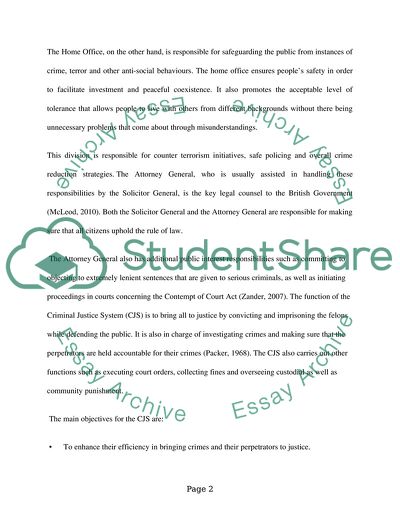Cite this document
(The Role of the Rule of Law in the Criminal Justice Process in the UK Essay, n.d.)
The Role of the Rule of Law in the Criminal Justice Process in the UK Essay. Retrieved from https://studentshare.org/law/1792543-critically-examine-the-role-of-the-rule-of-law-in-the-criminal-justice-process-in-uk
The Role of the Rule of Law in the Criminal Justice Process in the UK Essay. Retrieved from https://studentshare.org/law/1792543-critically-examine-the-role-of-the-rule-of-law-in-the-criminal-justice-process-in-uk
(The Role of the Rule of Law in the Criminal Justice Process in the UK Essay)
The Role of the Rule of Law in the Criminal Justice Process in the UK Essay. https://studentshare.org/law/1792543-critically-examine-the-role-of-the-rule-of-law-in-the-criminal-justice-process-in-uk.
The Role of the Rule of Law in the Criminal Justice Process in the UK Essay. https://studentshare.org/law/1792543-critically-examine-the-role-of-the-rule-of-law-in-the-criminal-justice-process-in-uk.
“The Role of the Rule of Law in the Criminal Justice Process in the UK Essay”, n.d. https://studentshare.org/law/1792543-critically-examine-the-role-of-the-rule-of-law-in-the-criminal-justice-process-in-uk.


